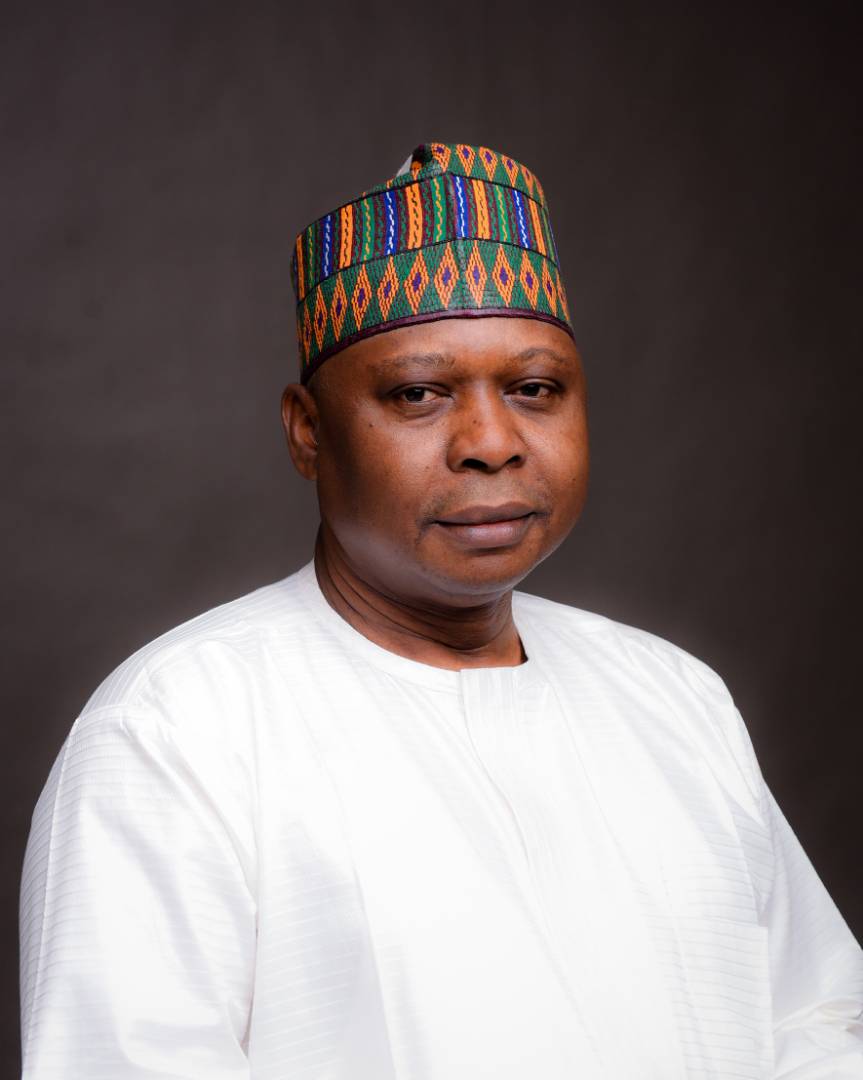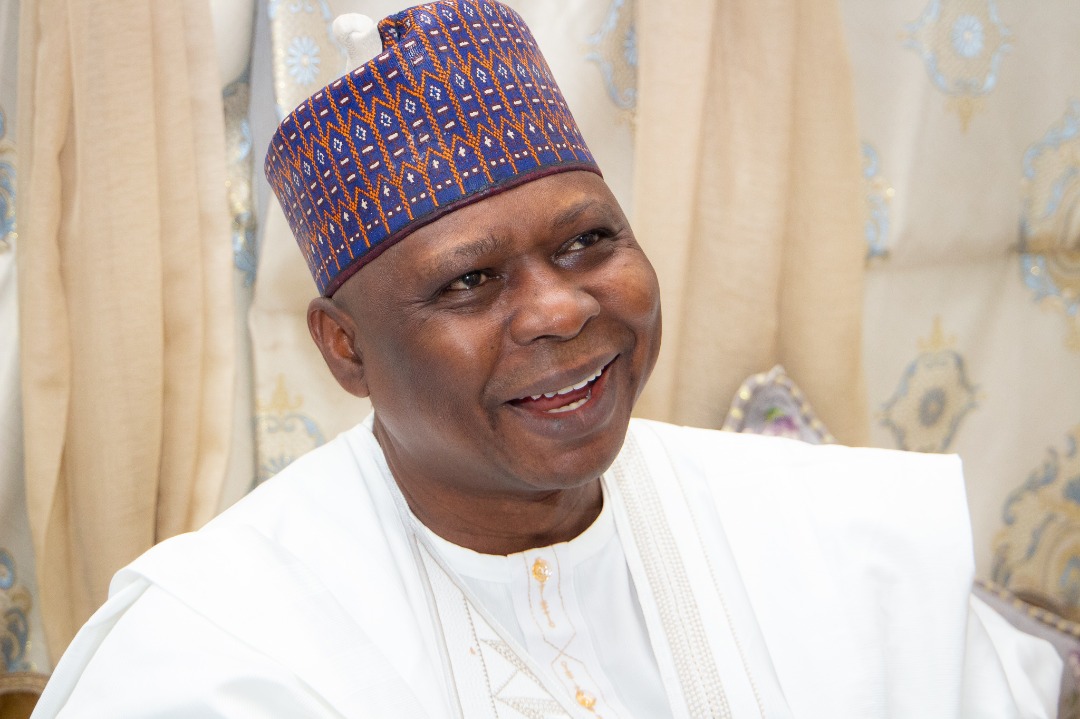Turaki’s Soothing Balm for A Bruised PDP

Hon. Tanimu Turaki
After a prolonged period of internal crisis, many had written off
the Peoples Democratic Party (PDP) as a fractured entity,
paralysed by leadership disputes and unable to chart a
cohesive path forward. The emergence of Tanimu Turaki, SAN,
as the consensus candidate to succeed Iliya Damagun as
national chairman marks a pivotal moment—one that signals
renewed hope and strategic recalibration.
With less than three weeks to the party’s national convention in
Ibadan, Oyo State, the resolution of the chairmanship issue is
both timely and reassuring. It allows the PDP to approach the
convention with a sense of unity and purpose, having settled
the most consequential leadership question.
A Hard-Won Consensus
The journey to consensus was anything but smooth. Several
prominent names were floated, including founding members
Professor Jerry Gana and Alhaji Sule Lamido—figures with
deep administrative and political experience. Their exclusion
was no small feat, especially as the North Central zone, which
previously held the chairmanship, continued to assert its claim.
However, after two months of strategic engagement,
introspection, and intense negotiation, the Bala Mohammed-led
PDP Governors Forum steered the party toward zoning the
chairmanship to the North West. From there, the caucus rallied
around Hon. Tanimu Turaki, a Senior Advocate of Nigeria and
former Minister of Special Duties under the Goodluck Jonathan
administration.
This decision was not merely about filling a vacant seat—it was
a calculated move to reposition the party ahead of the 2027
general elections. The PDP needed a leader who could unify its
fractured ranks, rebuild trust, and reenergize its base. Turaki,
with his reputation for calm deliberation and bridge-building,
emerged as the ideal candidate.
Why Turaki?
Turaki’s appeal lies not in flamboyance or political theatrics, but
in his reputation as a peacebuilder and unifier. Described by
insiders as a non-aligned operator, he is seen as someone
capable of bridging divides rather than deepening them. While
he may not match the political gravitas of Gana or Lamido,
Turaki is widely regarded as a loyal party man with a solid
professional pedigree and broad experience in governance.
His tenure as Minister of Special Duties and Intergovernmental
Affairs in 2013 exposed him to the complexities of federal
administration, equipping him with the tools to navigate the
PDP’s current challenges. Calm, calculating, and deliberate,
Turaki is expected to bring a stabilizing presence to the party’s
leadership.
Turaki is far from a political novice suddenly thrust into
prominence. Rather, he is a deeply rooted party loyalist whose
years of service and commitment to the PDP have earned him
both distinction and trust within its ranks.
His credibility and versatility have not gone unnoticed. In
recognition of his strategic value, he was appointed Deputy
Director General for the North in President Jonathan’s 2015
campaign and later served as Chairman of Legal Matters for
Atiku Abubakar’s presidential campaign team in 2019.
He is also known for his ability to listen, mediate, and find
common ground—qualities that are sorely needed in a party
still reeling from internal divisions and external pressures. His
emergence signals a shift from combative politics to conciliatory
leadership, a move that could help the PDP regain its footing.
Strategic Zoning and the North West Factor
Zoning the chairmanship to the North West is more than a
conciliatory gesture—it’s a strategic move. The region boasts
the highest number of registered voters in the country, and any
party serious about winning the presidency must court its
support, particularly in Kano State.
Turaki’s Kebbi State, which was controversially lost to the APC,
represents one of several constituencies the PDP aims to
reclaim. The party is also fortunate to have Governor Dauda
Lawal of Zamfara in the zone—a dynamic technocrat who has
made significant strides in infrastructure, empowerment, and
agriculture despite daunting security challenges.
The North West is not just a numerical powerhouse; it is a
political bellwether. By zoning the chairmanship to this region,
the PDP is signalling its intent to reconnect with its traditional
strongholds and rebuild its grassroots structures. Turaki’s
appointment is thus both symbolic and strategic—a message to
the zone that the party is serious about its revival.
Credit to the Governors Forum
Amid legal wrangling and attempts to destabilize the PDP, the
Bala Mohammed-led Governors Forum deserves
commendation for breaking the impasse over the chairmanship.
Their principled stand against anti-democratic forces helped
preserve the party’s pluralistic foundation.
Governors Bala Mohammed (Bauchi), Ahmadu Fintiri
(Adamawa), Seyi Makinde (Oyo), Dauda Lawal (Zamfara),
Ademola Adeleke (Osun), Caleb Mutfwang (Plateau), and Agbu
Kefas (Taraba) stood firm when others faltered, defending the
diversity and democratic ethos upon which the PDP was built.
Their efforts reflect a broader commitment to internal
democracy and party cohesion. In a political climate where
opportunism often trumps principle, these governors chose to
prioritize the long-term health of the party over short-term
gains. Their leadership has been instrumental in steering the
PDP away from the brink.
The Road Ahead
For Turaki, the real work begins now. He must immediately
engage with all factions—friend and foe alike—to calm tensions
and foster reconciliation. While it may be unrealistic to expect
universal agreement, inclusive dialogue can pave the way for
healing and unity.
The PDP’s path to the 2027 general elections hinges on its
ability to rebuild trust, reclaim lost ground, and present a
credible alternative to the electorate. Turaki’s leadership will be
central to that mission.
He must also address the structural weaknesses that have
plagued the party—poor coordination, lack of discipline, and
inconsistent messaging. By instituting reforms, strengthening
internal mechanisms, and promoting transparency, Turaki can
help restore the PDP’s credibility.
Moreover, he must work closely with the Governors Forum, the
National Working Committee, and other stakeholders to craft a
compelling vision for the party. This includes articulating clear
policy positions, engaging with civil society, and mobilizing
youth and women—groups that are increasingly influential in
Nigeria’s political landscape.
Conclusion
The choice of Tanimu Turaki as PDP chairman is a bold and
thoughtful move—one that reflects a desire for unity, strategic
positioning, and electoral revival. It is a recognition that
leadership matters, and that healing a bruised party requires
more than rhetoric; it demands action, empathy, and vision.
As the PDP prepares for its national convention and looks
ahead to 2027, Turaki must rise to the occasion. The stakes are
high, but so too is the opportunity. If he can harness the
goodwill of stakeholders, reconcile warring factions, and
reenergize the party’s base, he may well be the soothing balm
the PDP needs to heal—and thrive.
Prince Oyerinde of the Iresa-Adu Royal House,
Ogbomosho

